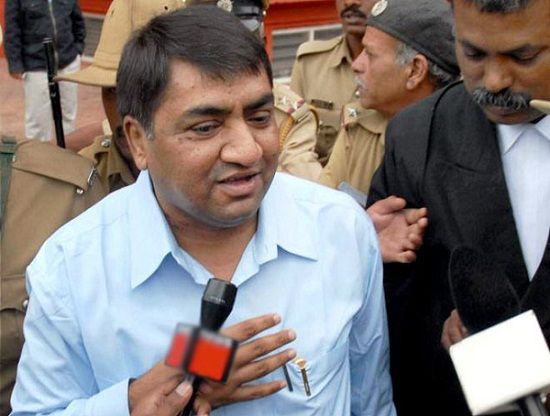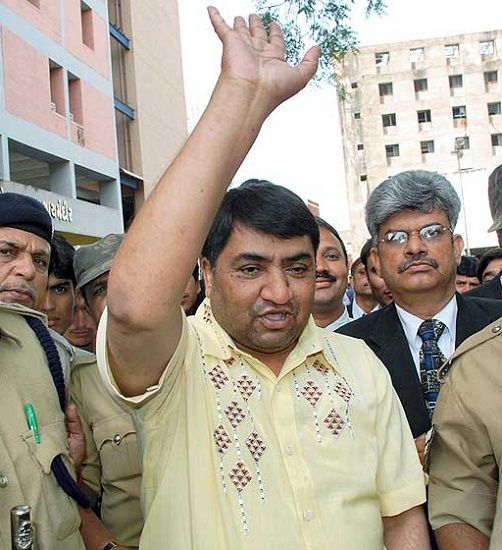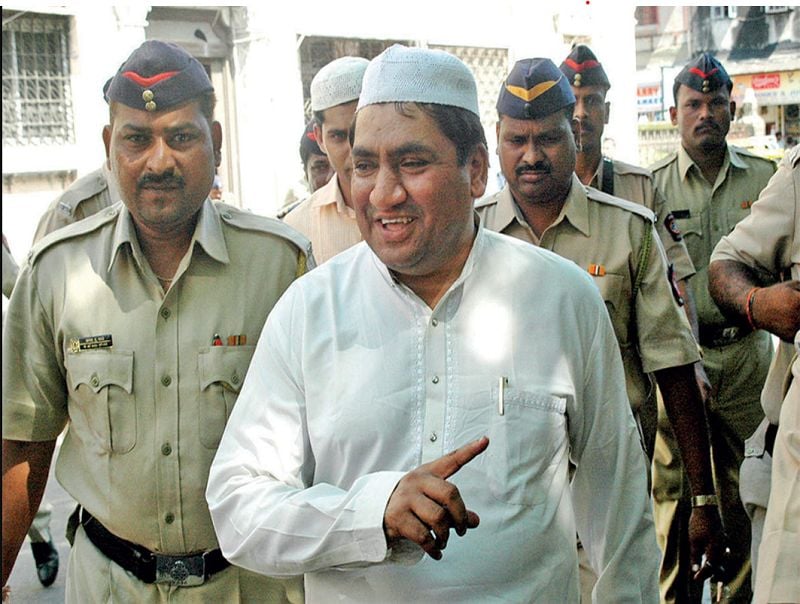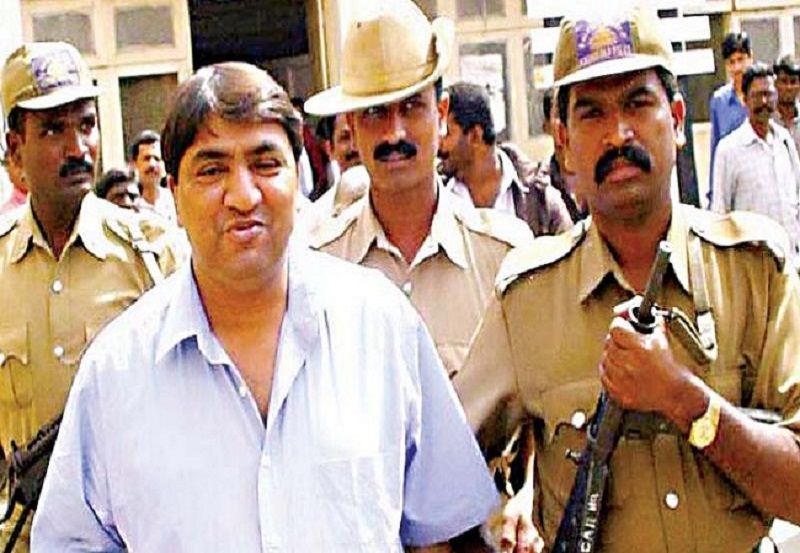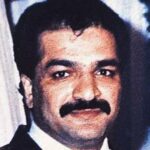Abdul Karim Telgi Age, Death, Girlfriend, Wife, Children, Family, Biography & More
Quick Info→
Hometown: Belgaum, Karnataka
Death Cause: Multi Organ Failure
Age: 56 Years
| Bio/Wiki | |
|---|---|
| Full Name | Abdul Karim Ladsaab Telgi |
| Nickname | Karim Lala |
| Profession | Counterfeiter |
| Famous for | Being the main convict in the Stamp Paper Scam 2003 |
| Physical Stats & More | |
| Height (approx.) | in centimeters- 165 cm in meters- 1.65 m in feet & inches- 5’ 5” |
| Eye Colour | Black |
| Hair Colour | Black |
| Personal Life | |
| Date of Birth | 29 July 1961 (Saturday) |
| Birthplace | Khanapur, Belgaum, Karnataka |
| Date of Death | 23 October 2017 |
| Place of Death | Victoria Hospital, Bengaluru |
| Age (at the time of death) | 56 Years |
| Death Cause | Cardiac arrest due to Multi-organ failure [1]The Times of India |
| Zodiac sign | Leo |
| Nationality | Indian |
| Hometown | Belgaum, Karnataka |
| School | Sarvodaya Vidyalaya English Medium High School, Khanapur |
| College/University | Gogte College of Commerce, Belgaum |
| Educational Qualification | Bachelor of Commerce (1984) [2]The Hindu |
| Controversies | Scam 2003 Telgi was the mastermind behind one of India's biggest scams the, 'Telgi Scam,' a multi-crore counterfeit stamp paper scam. He started by delivering fake passports. Thereafter, he began more complex counterfeiting of stamp papers and appointed nearly 350 agents, who sold the fakes to those who purchased bulk, including banks, stock brokerage firms, and insurance companies. The size of his business was estimated to a whopping 200 billion rupees. Several cases were filed against Telgi across the nation in this regard. Arrested in the murder of an employee In 2006, a court charged Abdul Karim Telgi, his nephew Tabrez and associates Uday Sawant and Sajid in the murder of Christoper Bhatti, who was driver of Telgi. They all pleaded guilty in the court. According to Uday Sawant, Bhatti used to handle his fake stamp paper business in Tamil Nadu. Bhatti had allegedly stolen Rs 2.5 lakh of Telgi and went missing after that. On 7 August 2001, Bhatti was caught by Telgi’s men and was brutally beaten. His body was thrown in the Mahim creek. When police discovered the information about the murder, they lodged an FIR and arrested Telgi and other accused in the murder case. [3]Rediff |
| Relationships & More | |
| Marital Status (at the time of death) | Married |
| Affairs/Girlfriends | Tarannum Khan (bar dancer)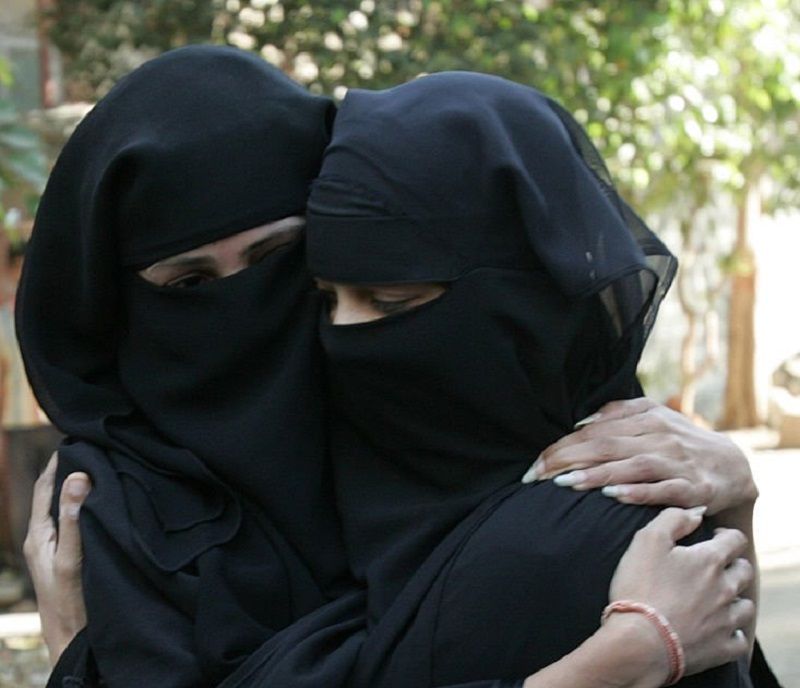 |
| Marriage Date | 19 April 1987 |
| Family | |
| Wife/Spouse | Shahida Telgi (deceased)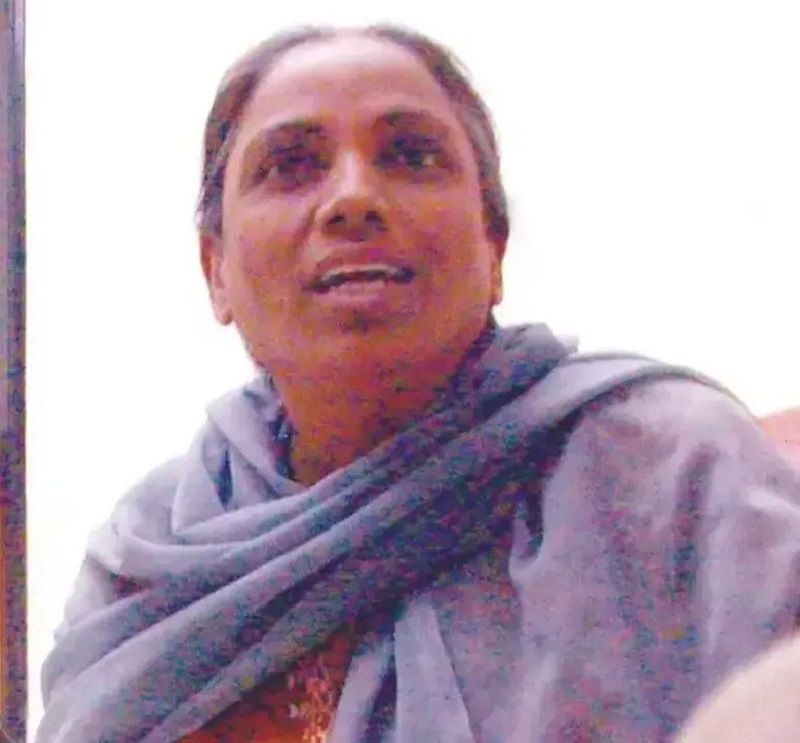 |
| Children | Daughter- Sana Talikoti |
| Parents | Father- Ladsaab Telgi (worked as a class 4 employee in the Indian Railways) (deceased) Mother- Shariefabee Ladsaab Telgi |
| Siblings | Brother(s)- 2 • Abdul Rahim Telgi (elder) (deceased; 2004) • Abdul Azeem Telgi (younger) |
| Money Factor | |
| Net Worth (as of 2003) | Rs. 17,000 crore [4]The Economic Times |
Some Lesser Known Facts About Abdul Karim Telgi
- Abdul Karim Telgi was an Indian counterfeiter, who made fake stamp papers and was the main person involved in the Scam in 2003. He was imprisoned for 30 years. In 2023, a TV show series ‘Scam 2003: The Telgi Story’ on SonyLIV, based on his life, was released.
- When Abdul Karim was around seven or eight years old, his father passed away. The reason behind his father’s death was not clear, but he was known to have diabetes and was worried about the financial condition of the family. At that time, Abdul Karim’s mother, who was in her twenties, managed to receive a small monthly pension of sixty rupees for the family. However, this money was not enough to support the family. So, Abdul Karim and his two brothers helped their mother by collecting fruits like chikoos, pears, cherries, and mulberries from nearby forests and selling them on a pushcart at the Khanapur railway station. They also packed and sold their fruits to passengers travelling in the trains that stopped in Khanapur in 1970.
- He managed to pay his school fees by selling fruits and vegetables on trains.
- His older brother Abdul Rahim graduated with a BSc degree, but his younger brother Abdul Azeem left school before going to a university.
- Abdul Karim Telgi went from Khanapur to Mumbai to find a job. He stayed with his friends for about six to seven months and got a job as a sales executive at a company called M/s Filix India Ltd. He earned a monthly salary of Rs. 3,800, and this company was in the business of supplying office furniture. He was very lazy and did not work hard because of which he couldn’t reach his monthly sales goals. Because of this, he lost his job for not doing well. After that, he got a job as a manager under Mr Yusuf Usmail Turk at a budget stay lodge, Kishan Guest House, on Walton Road in Colaba. He stayed in that job for two-and-a-half years.
- Later, he went to Saudi Arabia to earn money. He lived in Saudi Arabia for seven years.
- After returning from Saudi Arabia, he began creating fake passports to make money. He started a business to send labourers to Saudi Arabia and named it Arabian Metro Travels, which was located in New Marine Lines, Mumbai. He made fake papers to help labourers pass through the airport, even if their passports had problems like the ECR stamp, which could raise suspicions with immigration officers. People who send workers abroad for jobs call this practice “pushing.”
- At first, Telgi began his scam in Maharashtra, Karnataka, and Andhra Pradesh. Then, he grew it to Delhi, West Bengal, Rajasthan, Gujarat, Haryana, and Madhya Pradesh.
- In 1991, he got arrested for the first time in a forgery case. He was arrested in 1993 for his involvement in a VISA racket.
- In jail, Telgi met a fellow criminal, Ratan Soni, and together, they planned to cheat people by producing fake stamp papers. Telgi shifted from making fake passports to making fake stamp papers. He purchased the stamp printing machines and got them repaired to carry out his operation. The operation was done very carefully. Telgi operated his business using the name ‘Telgi AKL Government Licensed Stamp Vendor.’ The short form of the first three parts of his name, AKL, became well-known in all later cases and mentions. In the book ‘Dangerous Minds,’ written by S. Hussain Zaidi and Brajesh Singh, they mention that in the CBI charge sheet, Abdul Karim Ladsaab Telgi is referred to as AKL Telgi. He hired more than 350 agents to sell the stamps to big purchasers such as banks, insurance companies, and stock brokerage firms.
- Many politicians, celebrities and police officials were part of this scam because to conduct the operation smoothly, Telgi required their permission.
- In 2001, the scam came to notice when a truck with fake stamp papers in Pune and Karnataka came to the local police’s attention for the first time. The police began an investigation into the case, but he fled away. When police received the information that Telgi planned to visit the Ajmer Dargah, he was arrested from there.
- Numerous political leaders and activist Anna Hazare demanded his arrest. Anna Hazare even approached the Bombay High Court in 2003 to file a Public Interest Litigation (PIL).
- Subsequently, the court established a Special Investigation Team (SIT) that arrested 54 individuals linked to the scam. The scam was worth Rs. 300 billion (approximately Rs. 30,000 crores). When the SIT ran narco tests on him, he named a few politicians and police officials, but they were not arrested because of a lack of evidence.
- Later on, the CBI took charge of the case, and in 2004, they submitted a charge sheet after which he was jailed. During an investigation by CBI, they discovered 36 properties and 100 bank accounts with crores of rupees under Telgi’s name.
- Three years after that, in 2006, Telgi was convicted and received a 30-year imprisonment. Then, in 2007, he was given another 13-year jail term by a court and had to pay a fine of Rs. 202 crore.
- Even when he was in jail, reports suggested that Telgi continued his illegal activities. The news came out when two prison guards were imprisoned for providing him with cell phones. To cover his fine, the Income Tax Department seized his assets.
- When examining Telgi’s earnings for the fiscal year 1996-97, the Tax Department discovered that he had earned Rs. 4.54 crore, but only Rs. 2.29 crore was recorded. Telgi’s lawyer argued that the unaccounted money came from his kerosene transport business. However, this explanation was dismissed because he couldn’t provide any documents for his involvement in that business.
- A 2003 report from The Financial Times indicated that between 1992 and 2002, Telgi faced legal charges in at least 12 cases in Maharashtra alone, and an additional 15 cases were registered against him in other states.
- The most troubling part of the scandal was that it involved many police officers and government employees, including Nikhil Kothari, who worked as an Assistant Police Investigator. Despite earning a monthly salary of just Rs. 9,000 (equivalent to US$110), Kothari had assets worth over Rs. 1 billion (equivalent to US$13 million). Many other police officers were also involved in the case. Pradip Sawant, who served as the Deputy Commissioner of Police in the Special Branch of Mumbai, was initially removed from his position but later called after being given a clean chit.
- S. M. Mushrif, known for his book “Who Killed Karkare,” played a significant role in managing the case.
- D. Roopa, a former DIG, alleged that Abdul had a special cell at Central Jail in Parappana Agrahara and that the prison authorities were giving him preferential treatment.
- Telgi was suffering from meningitis, diabetes, and hypertension for more than two decades prior to his death. His health worsened when he was in prison. He was diagnosed as HIV positive when he was in jail. Abdul passed away on 23 October 2017, at Victoria Hospital in Bengaluru, due to a cardiac arrest caused by multiple organ failure.
- After his demise, in 2018, all the people accused in the case were released. The government considered the scam legal because if they had called it illegal, the people who used the stamps purchased from Telgi would have panicked and it would have created a lot of problems for the government.
- His wife Shahida was also convicted of the Scam in 2003 but was released in 2007. In 2017, his wife wanted to donate Rs. 100 crore property to the government. In the same year, Shahida requested a court in Pune to confiscate Telgi’s benami properties and allocate them for the betterment of the nation. In a statement, she said,
The last will of my husband was to the effect that properties which were purchased from the proceeds of the so-called fake stamp scam should be seized by the government and used for the benefits of the nation. I came to know about some properties that remained to be seized by the police, which are in the name of the relatives. It is my binding duty to fulfil the last wish of my husband to bring this fact to the notice of the court and the prosecution agency. Therefore, I filed this application.”
- Karim’s brothers Abdul Rahim and Abdul Azeem were also involved in the crimes committed by their brother. Their names came in the police records at the Bangalore City Market Police Station and the Pune Bund Garden Police Station. In 2004, when the CBI took over the cases, Abdul Rahim Telgi passed away before facing charges in the Bangalore City Market case. Abdul Azeem started working as a labourer in the Gulf. His brother Abdul Azeem received help from Abdul Karim when he started working as a travel agent, and later, he came back to help his brother in various businesses, like sending workers to the Gulf and dealing with fake stamp papers. Reportedly, he played a big role in finding people for Abdul Karim’s fake stamp paper network. He was also active in politics and was a member of the Congress party.
- Telgi was in a relationship with a bar dancer named Tarannum Khan, who worked at Deepa Bar in Mumbai. Reportedly, on 31 December 2001, Abdul spent more than Rs. 90 lakh on her.
- A film named, ‘Mudrank (The Stamp),’ based on Telgi’s stamp scandal, was finished in 2008 but had to wait for a year to be shown on the big screens across the country.
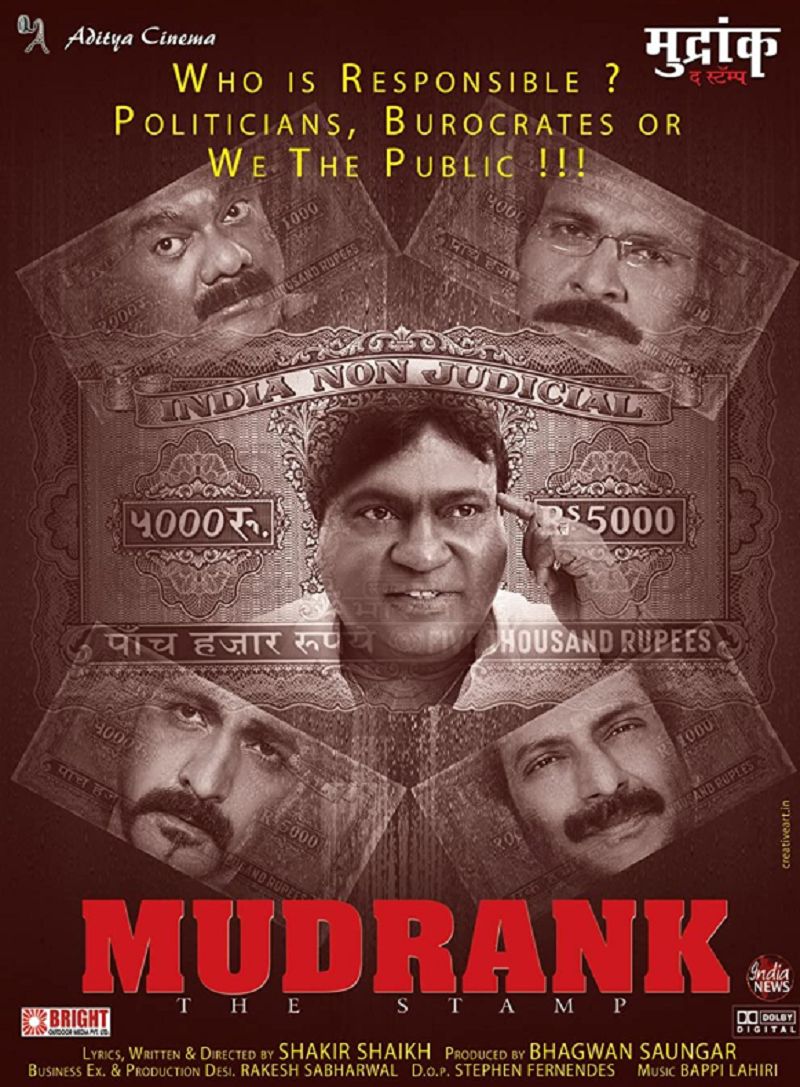
- In 2022, his daughter, Sana moved to Bombay Sessions Court for legal notice to filmmaker Hansal Mehta to stop him from making the web series named “Scam 2003-The Curious Case of Abdul Karim Lala Telgi” which is based on the life of her father.
- In 2022, a book titled ‘The Counterfeiter : Abdul Karim Telgi and the Stamp Scam’ was published based on the Scam 2003.
- In 2023, an Indian Hindi-language biographical financial thriller television series titled ‘Scam 2003: The Telgi Story’ was released on SonyLIV. The series was directed by Hansal Mehta and was based on the life of Abdul. Actor Gagan Dev Riar played the role of Abdul in the series.
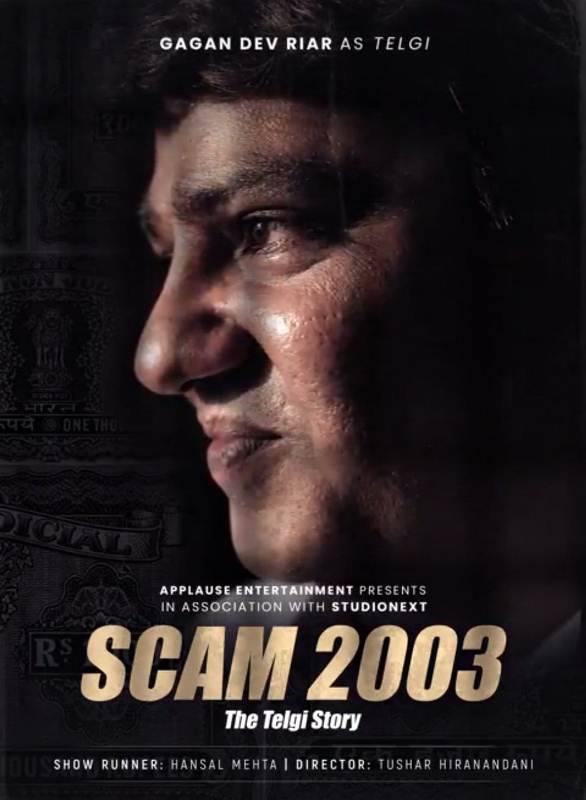
- His friends and family called him by the name Karim Lala.
- He fell in love with Shahida Begum, the sister-in-law of Yusuf Ismail under whom he worked as a manager at a budget stay lodge, Kishan Guest House, on Walton Road in Colaba.
References/Sources:

